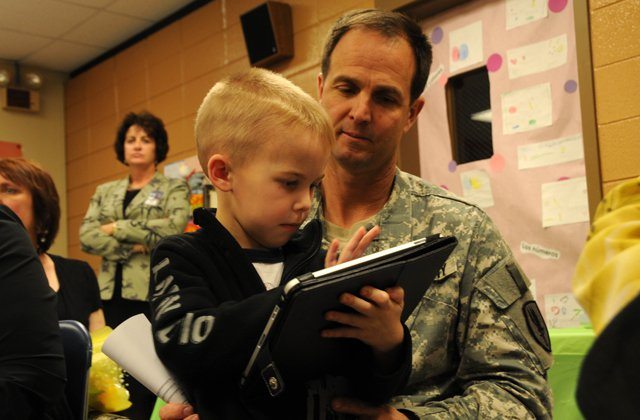The holiday season has gone, and during that time people may have received gifts ranging from new computers to mobile devices, but according to Directorate of Public Safety officials — with new devices comes new responsibilities.
Many devices such as new computers, cell phones and tablets can come with various security risks when it comes to security of the device itself as well as security of one’s personal information, according to Peggy Contreras, Fort Rucker Community Police supervisor.
“We just want to make sure that people are keeping their new devices secure, and we want them to be knowledgeable about how to use them and the risks they can pose when sharing information,” said Contreras.
The need for awareness extends not only to adults on Fort Rucker, but to children on the installation as well, she said.
“Many children may have received tablets or cell phones for Christmas and it’s up to the parents to make sure they understand the security settings on these devices before they give them to their children,” said the supervisor. “Parents must also teach their children how to responsibly use these devices because the security of one’s personal information comes down to personal responsibility.”
The security that Contreras is referring to has to do with posting personal information on social media websites and other sites across the Internet. The protection of personally identifiable information, known as PII, is not only for those that work on Fort Rucker, but anyone who hopes to keep their information safe.
“People should understand that there can be consequences if they aren’t careful about sharing information across various social media sites,” said Contreras. “If a person isn’t familiar with the security settings on a device, they should get with someone who is and try to learn about it.”
“When people post [to social media sites], they should really think before they do so and be very careful about what type of PII and information they put out there,” said Lt. Col. Madeline Bondy, provost marshal and director of public safety on Fort Rucker. “A lot of people are worried about their personal information, but most don’t realize how much data mining is going on out there.”
Contreras also spoke about the use of applications and their ability to share location information and track people’s trends.
“Many of these applications that people use are also geo-tagging and finding out what people’s [interests] are, and that can provide someone your exact location, even when taking a photo,” she said. “If someone wanted to pretend to get to know you, the information is out there and that’s why we need to learn to protect our information.”
Contreras suggests that people disable the ability for mobile devices to share location information, which can usually be done in the settings options of a device.
The Internet isn’t the only place people can gather another’s personal information, said Contreras. Another way that a person’s information can be jeopardized is if one of their devices that contains this information is lost or stolen.
“These days, our entire lives are put into these devices,” she said. “They have our family members, home address, banking information, passwords — basically everything. If someone steals your device and is able to access it, they have access to your entire life.
“People need to make sure to password protect these devices to make sure that nobody can access them,” she continued.
Contreras also suggests that people not leave their devices unattended, especially in plain view such as on their desk or in their cars.
Leaving a device in plain view is equivalent to asking someone to take it, she said.
“The strongest security tool that anyone has is sitting between your ears,” said Bondy. “I just can’t say it enough — the big thing is just personal responsibility.”










